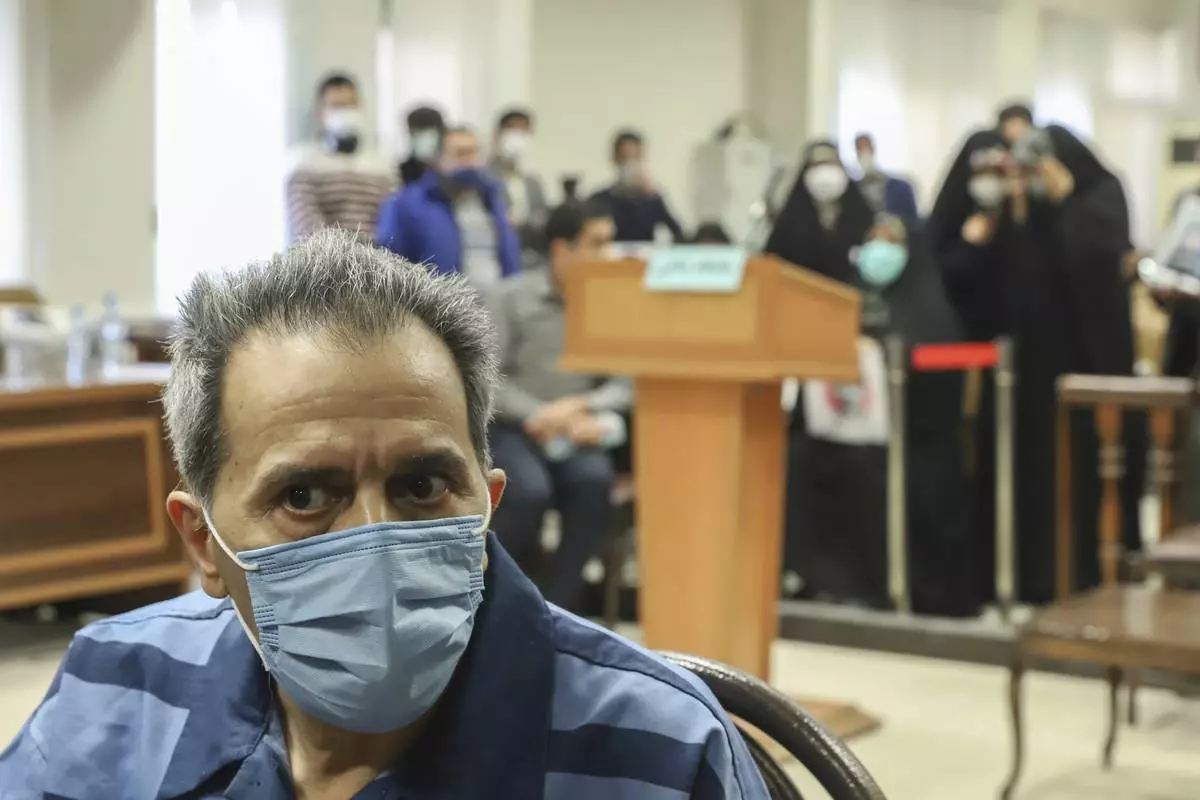After two months of college football comes the first chance to see if committee members in charge of setting the new, 12-team bracket for the playoff have been watching the same season unfold as everyone else.
If they have, then Oregon — undefeated and a unanimous No. 1 in the latest AP Top 25 — will get top billing when the first of six sets of weekly rankings are revealed Tuesday evening.
If not, then who would they pick? Miami, BYU and Indiana are the nation's top undefeated teams alongside the Ducks, but one thing the committee has made clear is that wins and losses are only one factor in determining its top 25. That list will eventually be used to slot teams into the final bracket that will be unveiled Dec. 8.
Strength of schedule will also play a big factor and would account for teams with one loss, setting the table for the likes of Ohio State and Georgia potentially being ranked higher than the unbeaten.
The playoff is expanding from four to 12 teams this year, college football's latest attempt to find a perfect way to crown a champion. That the expanded playoff adds eight more games that were then sold to ESPN for $7.8 billion certainly played a big role in these calculations.
A committee of 13 people will pore over the results from the first 10 weeks of the season and rank the teams from 1 through 25. This is just a starting point, because none of these rankings are solidified until Dec. 8 — the date of the last poll, at which point the teams will be slotted into the bracket based on their ranking.
Well, not exactly. The five best-ranked conference champions are guaranteed spots in the playoff no matter where they're slotted in the poll. And the top four are guaranteed first-round byes.
So, for instance, let's say BYU wins the Big 12 and was ranked ninth by the CFP (that is its ranking in this week's AP poll). That means BYU would automatically move up to No. 4 in the CFP bracket, since the top four conference champs get byes. And if, for instance, Boise State wins the Mountain West, is ranked lower than 12 by the CFP but no other Group of Five school is ranked ahead of the Broncos, they would make the playoff anyway.
There are seven at-large selections and no limit to the number of at-large bids a conference can receive.
If Oregon isn't placed atop the standings, then the committee is watching a different sport than the rest of us. The Ducks have beaten five Big Ten opponents by three touchdowns or more and also have a one-point victory over Ohio State, ranked third by AP.
It will be interesting to see what the committee does with Notre Dame, an independent with no way to win a conference (and a bye) that is 7-1 but also has a home loss to Northern Illinois in Week 2 on its resume.
Also, Indiana is 9-0 and not finding much resistance on its less-than-brutal Big Ten schedule. Doubters will be looking at that Nov. 23 matchup against Ohio State.
Once the bracket is set Dec. 8, here is what comes next:
— Seeds five through eight will host seeds nine through 12 in first-round games on campus. Those games will be played on Dec. 20 (one game) and Dec. 21 (three).
— The quarterfinals will be played in traditional bowl games on Dec. 31 (Fiesta Bowl) and Jan. 1 (Peach, Rose, Sugar). Where the top four seeds will be aligned as closely as possible with current and traditional bowl tie-ins. For example, the Big Ten champion would play in the Rose Bowl and the SEC champion likely plays in the Sugar Bowl.
— The semifinals will also be played in bowl games. This season, that’s Jan. 9 at the Orange Bowl and Jan. 10 at the Cotton Bowl.
— The championship game will be played at Mercedes-Benz Stadium in Atlanta on Jan. 20.
Get poll alerts and updates on the AP Top 25 throughout the season. Sign up here. AP college football: https://apnews.com/hub/ap-top-25-college-football-poll and https://apnews.com/hub/college-football

Boise State running back Ashton Jeanty leaps over San Diego State cornerback Chris Johnson during the second half of an NCAA college football game Friday, Nov. 1, 2024, in Boise, Idaho. (Kyle Green/Idaho Statesman via AP)

Notre Dame cornerback Leonard Moore (15) intercepts a pass in the end zone over Navy running back Eli Heidenreich (22) during the second half of an NCAA college football game Saturday, Oct. 26, 2024, in East Rutherford, N.J. (AP Photo/Adam Hunger)

Miami wide receiver Samuel Brown (11) is stopped short of the goal line for a first down as Duke safety DaShawn Stone, right, defends during the second half of an NCAA college football game, Saturday, Nov. 2, 2024, in Miami Gardens, Fla. (AP Photo/Lynne Sladky)










